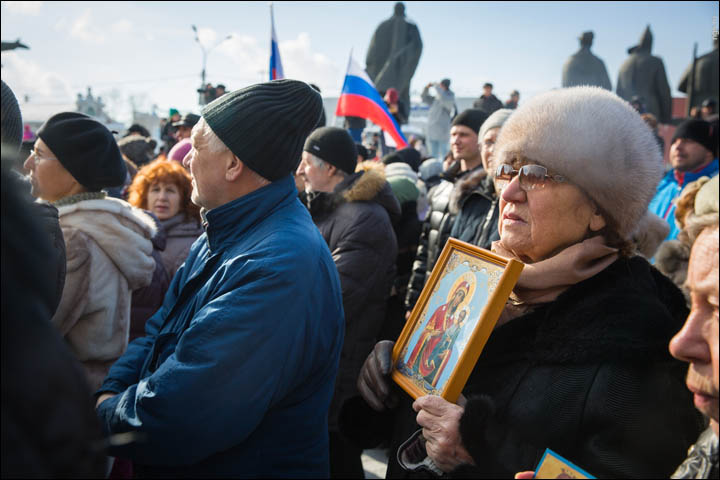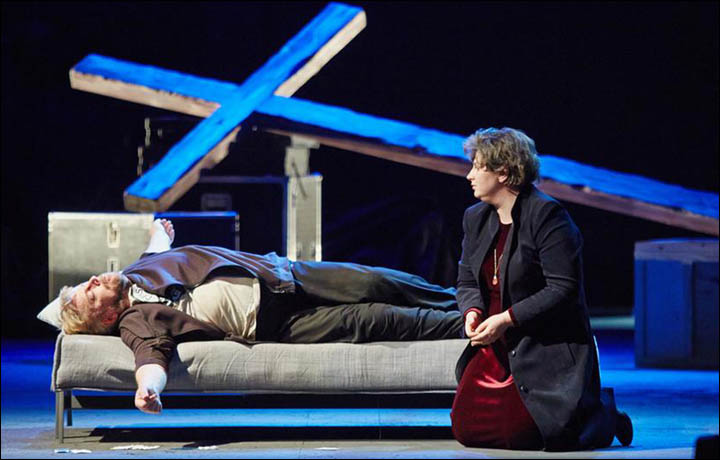Living in Russia in 2014-2015 and trying in some way to make sense of what is happening in Russian culture feels like a daily battle for sanity. That once famous catchphrase that the lunatics were taking over the asylum doesn't feel radical enough somehow. Attempting to describe the sense of absolute impotence at the spectacle of the takeover of the Cinema Museum by a band of barely competent, ideologically-correct tools (patriotic and Orthodox hammers) is one of those moments when writing a detailed account almost feels like a kind of self-harm. How could all of this have actually happened? And was there really so little resistance? No permanent general strike by cultural workers? The story surrounding the Tannhauser production in Novosibirsk is also developing into another cause celebre which seems to signal yet another nail in the coffin for independent culture and illuminates one more stage in this story of culture wars going on since early 2000 between moralists (whether of church or state- and they are often the same) and independent artists that came to the fore so dramatically with the trashing of the Beware Religion exhibition at the Sakharov Centre in 2003.
The latest stage in this saga could be deemed as the one in Prince Lemon took over the theatre (if you know your Gianni Rodari as many Russians do, or at least used to do). Prince Lemon today has arisen in the form of a former 'Emperor of Bananas' who goes by the name of Vladimir Kekhman. Having controlled the import of one third of the bananas which were brought into Russia in the 1990s and playing, in general, a not insignificant role in the development of Post-Soviet Russian capitalism he decided like Bulgakov's (or rather Gaidai's) Ivan Vasilievich that he wanted a change of profession. So the oligarch has in recent years turned ballet and theatre director. I'm not sure if history is very replete with this type of metamorphosis. Somehow I doubt it. Though I've always been intrigued by the fact that Silvio Berlusconi was said to have written a preface to a new edition of Erasmus's In Praise of Folly (I've still yet to get my hands on a copy of his actual text). Kekhman seems to be just as mired as Berlusconi in some very dubious business practices (if one knows Russian one could listen to this small item on Russia's independent Dozhd' television channel) and managed to find a typically British legal loophole to avoid any of the irritating trials that his Italian counterpart has been intermittently subject to. But instead of searching for political power to cover up his misdeeds he and others in the Russian elite are attempting the route of cultural domination.
 |
| Vladimir Kekhman, the former Banana Emperor, who has taken over the Novosibirsk Theatre of Opera and Ballet |
As a believer who has been christened in the Orthodox faith, and as a Jew, I take this [production] as an insult. It is a demonstration of internal godlessness in the style and in the spirit of a union of warring infidels. I won’t hide that I spoke today with Mezdrich and he told me that he won’t abandon this production and will stand to the end. I consider that he must resign and that this production must be removed from the repertoire.”
And soon enough a new job in the theatre world was coming the way of the banana emperor and this major new 'force' in the field of Russian culture. Prince Lemon (who Kekhman actually played in one of his own productions), it seems, in today's Russian post-Soviet form of oligarchic capitalism, wishes to direct theatres as well as selling bananas and real estate:
It appears that they won't be content until some form of 'moral control' is exercised at all levels of theatrical production. Reported comments from a high-level official in Putin's administration, Magomedsalam Magomedov, suggests that the state now wants to control theatre production before it gets into the repertoire. Moreover, with his dangerous talk of only showing productions which 'unite people rather than those that divide them' is quite clear that the state officials and the economic elites are interested in using the arts once again as a mobilizing tool in society promoting its own version of patriotic fervour.Whether the resistance of the theatrical and other artistic communities can amount to something real is yet to be seen. The public statements of support by people like Mark Zakharov are welcome as is the very public call from the independently-minded Russian Film-Makers Union to call for the reinstatement of Boris Maezdrich and the resignation of Vladimir Medinsky. How the cultural bureaucrats will react this latest act of apparent insubordination remains to be seen.






